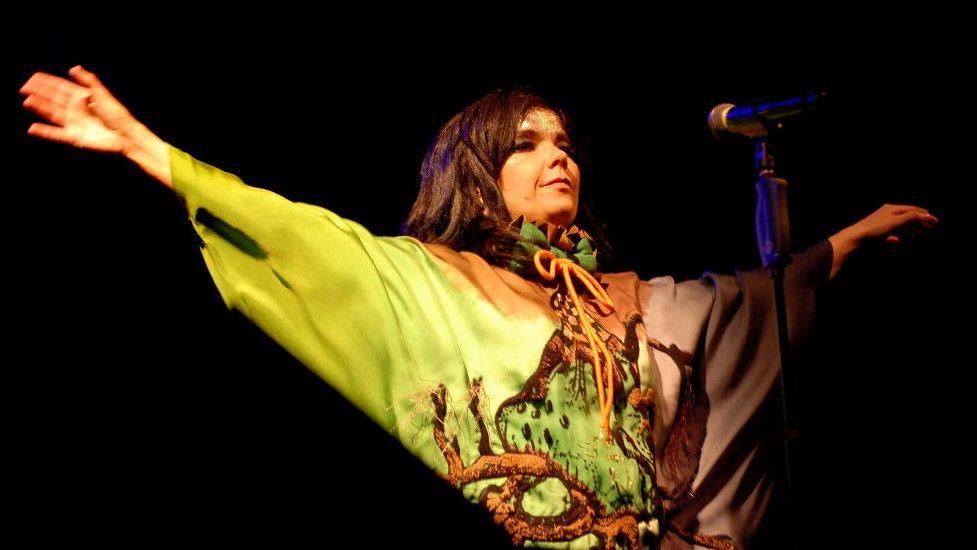Life in the village that hosts Glastonbury festival
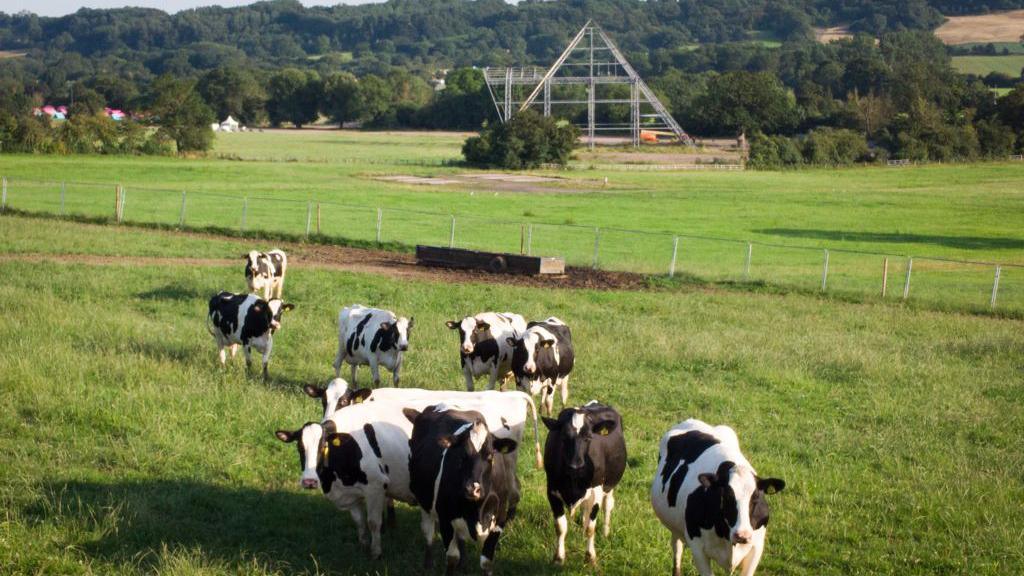
The Glastonbury festival site covers the rolling fields belonging to Worthy Farm, owned by festival organiser Michael Eavis
- Published
This week, thousands of people will be making their way towards Glastonbury Festival, armed with pop-up tents and dripping in glitter.
But aside from the peak of festival season, what is it really like to live in the quiet nearby village of Pilton?
With 200,000 festival goers about to descend on rural Somerset, we spoke to local residents to hear how they feel about its annual surge in popularity.
Owain Powell is the landlord of the Crown Inn, and says the festival helps to "boost business" in the summer.
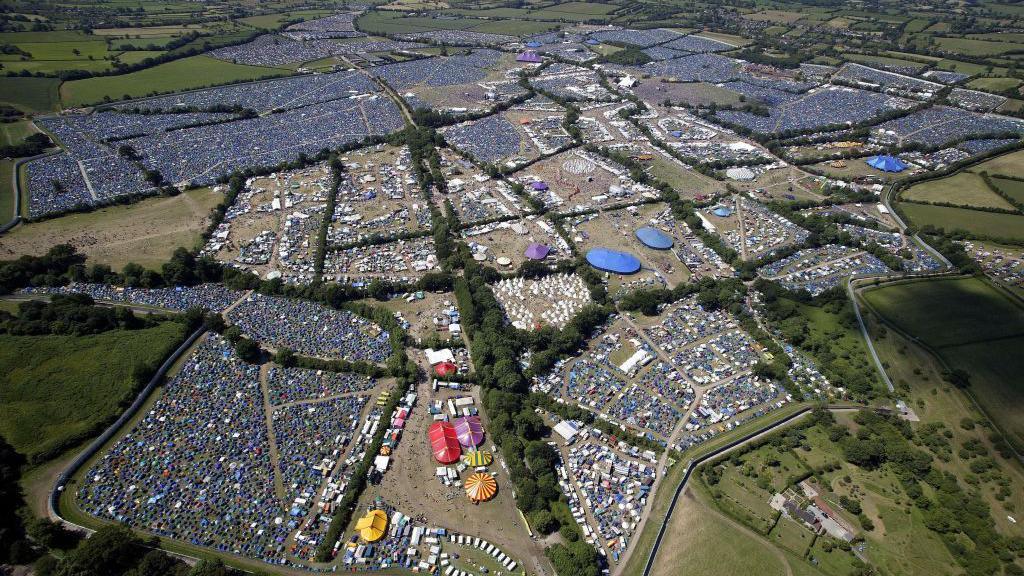
The festival site is enormous - more than a mile and a half across, with a perimeter of about eight and a half miles
For one week out of the year, the peaceful pastures of Worthy Farm play host to one of the world's biggest outdoor music festivals, with more than 80 stages.
Dua Lipa, Coldplay and SZA are gearing up to headline the Pyramid Stage this year, with plenty of other acts set to perform including Avril Lavigne, Anne-Marie and Declan McKenna.
"Obviously during this time of year we get a lot of new faces through the door, which is great for us, it's a real boost for business," said Mr Powell.
"It ends up being a hotspot for people who don't even have tickets to the festival."
Mr Powell says it is not only festival-goers quenching their thirst at his bar, but staff responsible for putting the festival on.
"There are 5,000 crew down on the site building, they all want somewhere to eat and drink and be merry, so here we are.
"Before this I traded on festival sites, that was my living, so I came from the world of knowing exactly what to expect."

Mr Powell says people flock to the village and his pub even if without tickets
But Mr Powell says despite the festival increasing the number of happy punters, it comes at a price.
"The festival doesn't keep us going," he said.
"Before, it was a lot easier to turn a profit on a pub but now you've really got to be thinking outside the box, it's not just about serving anymore.
"It's a good bonus at that time of year, getting more people through the door, but it's really hard in the pub business at the moment because the costs of everything are just spiralling out of control."
The pub have taken advantage of being so close to the iconic event, and have adopted several themed aspects of the music festival, including a 'pyramid stage' and slide, tepee and fire pit outside.
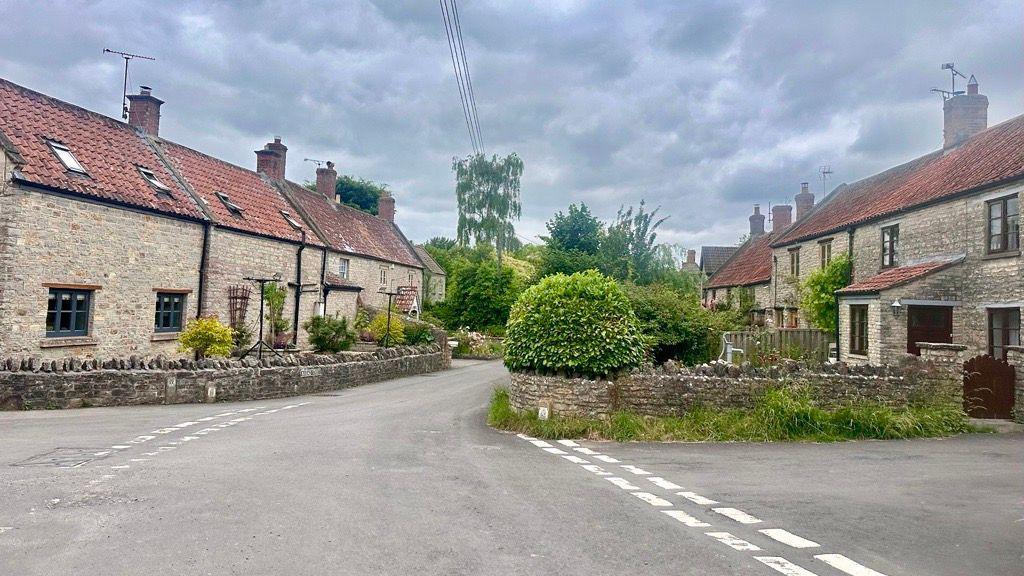
The village has a population of around 998 people
Local resident Mandy Rossiter has lived in the village since the late 1970s, and says the "population swells overnight" ahead of the festival.
"When you think, the size of the festival site is the size of the centre of Bristol. It's phenomenal," she said.
During the festival, the village's population grows from around 1,000 to 200,000 people
Naturally, the influx of people can lead to issues with noise, litter, congestion and anti-social behaviour.
Somerset Council said to manage traffic funnelling through the small village, stewards are posted on roadsides to direct any vehicles trying to navigate the twisting country lanes.
They also have enhanced security and safety measures in place during the event to prevent crime and anti-social behaviour, such as CCTV operations and extra police patrols.
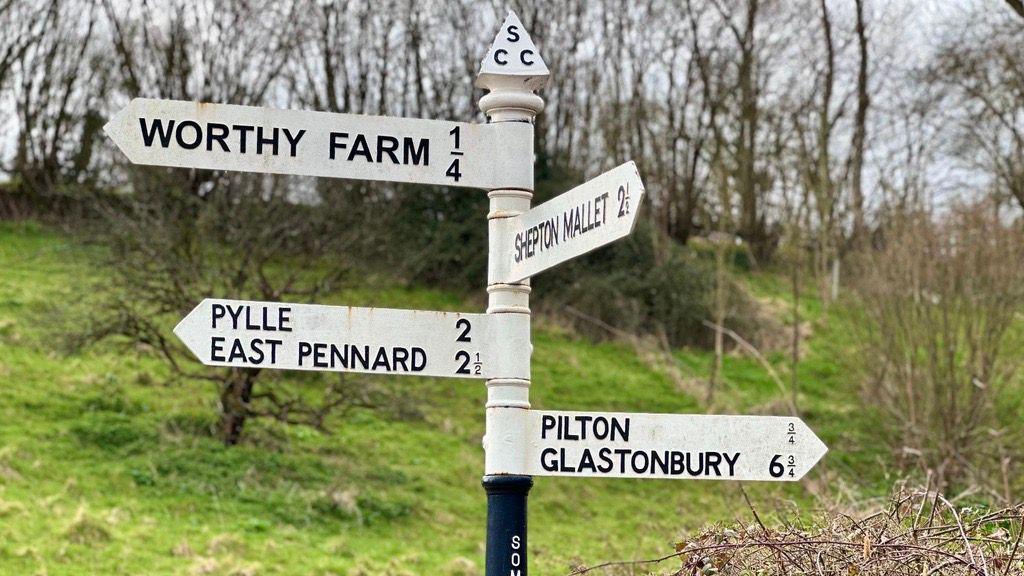
"Back in the day you had no security, you had people wandering in and out, you'd have people turn up before the festival started," said Ms Rossiter.
"Now you don't get any of that, so it's much safer."
Ms Rossiter added that the noise has never really bothered her, as the topography of the countryside deflects sound.
"What you do tend to hear is the beat of some of the stalls, you hear the thud," she said.
Overall Ms Rossiter said the festival comes with its pros and cons.
"The older generation, they're maybe not so happy," she said.
"The younger ones, 'ooh do you get a free ticket?' And of course it's a selling point if you've got a house for sale in the village."
Follow BBC Somerset on Facebook, external and X, external. Send your story ideas to us on email or via WhatsApp on 0800 313 4630.
Related topics
- Published20 June 2024
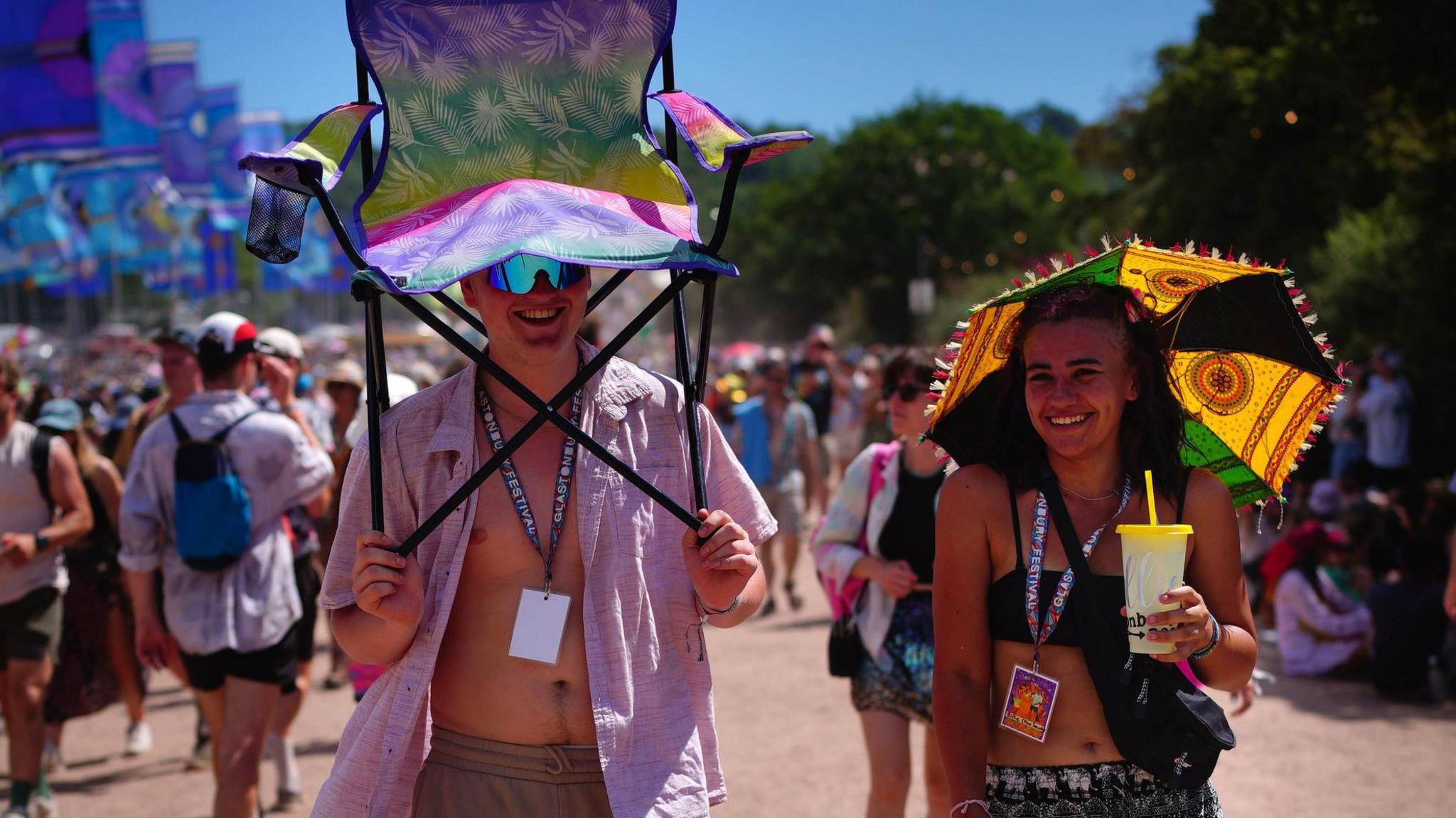
- Published18 June 2024
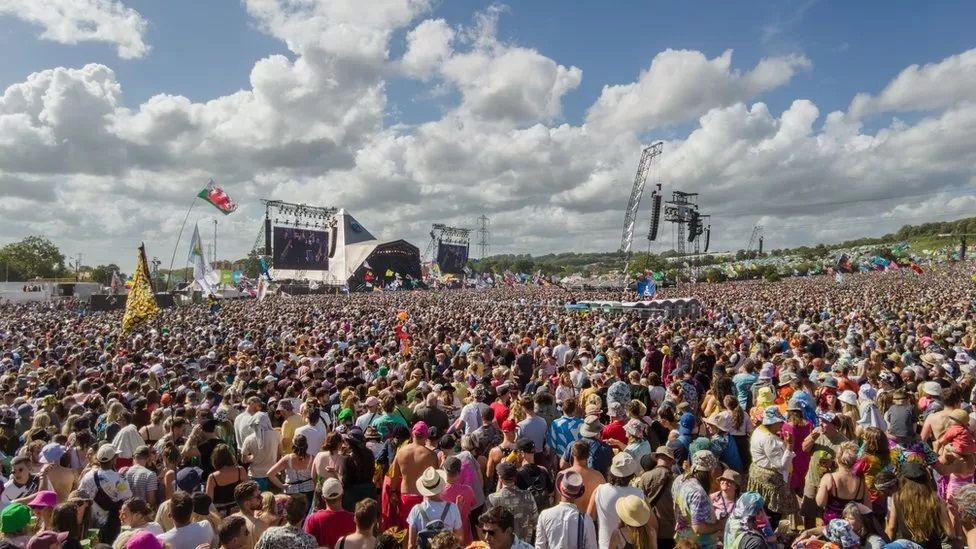
- Published13 June 2024
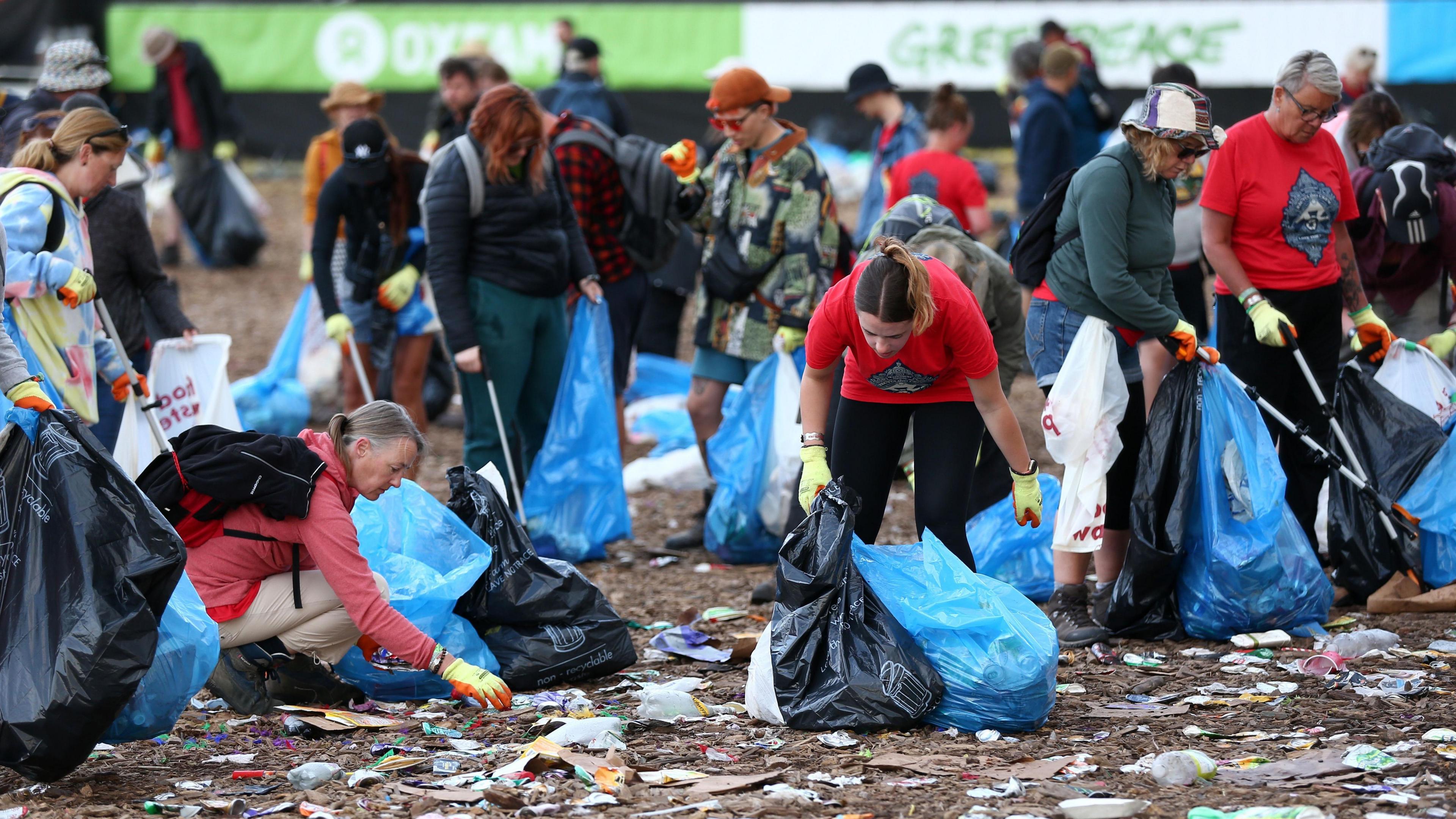
- Published10 June 2024
